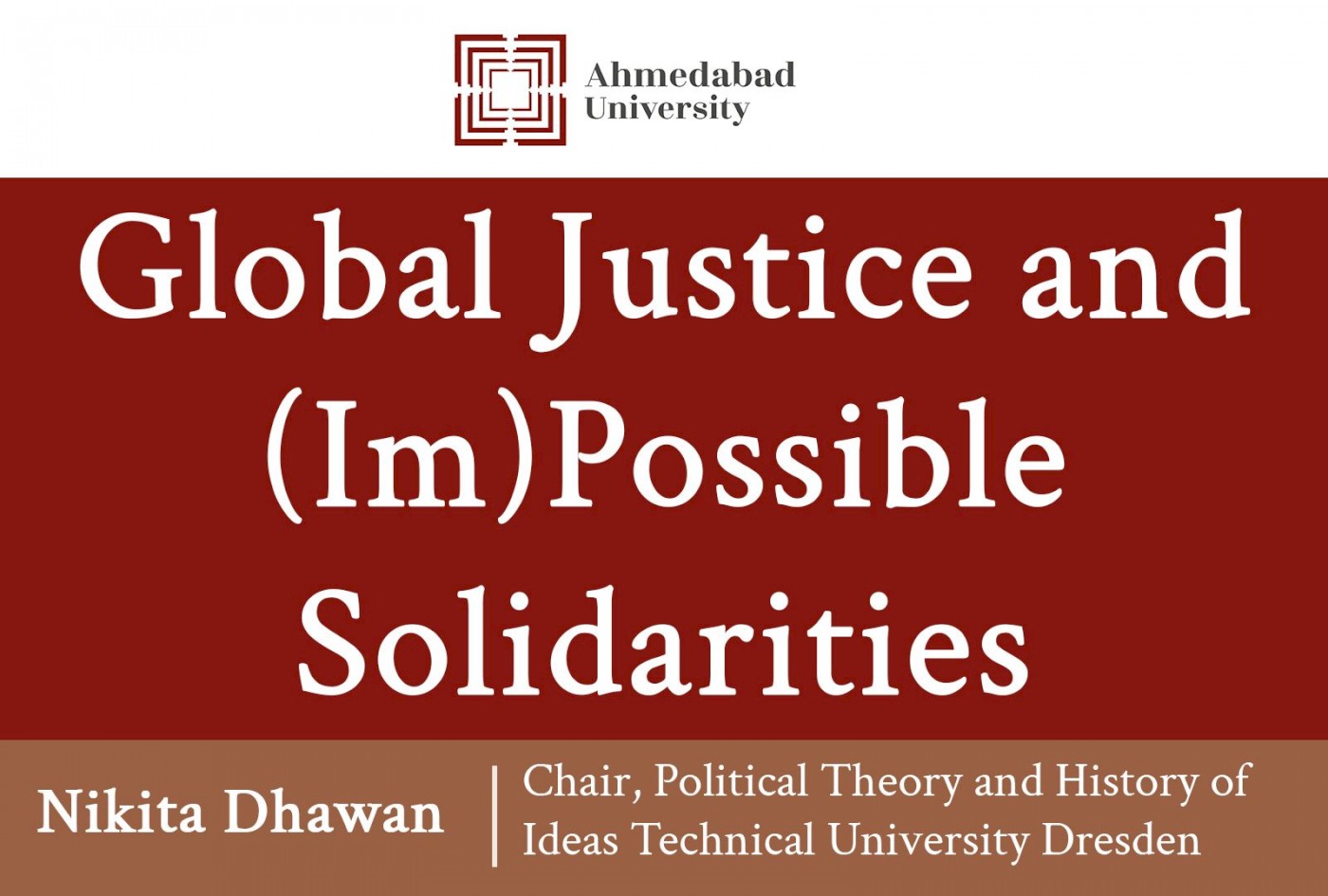Global Justice and (Im)Possible Solidarities

In the past decades there has been a proliferation of protest movements that seek to reconfigure international politics by way of interpellating a global demos that has been wronged by the neoliberal beast. Street politics seems to have transformed the way power, agency and resistance are being perceived and performed. Protest movements in different parts of the world evoke promises of political change through shaming powerful states and international institutions into good behaviour. However, the question remains, how effective are these fantasies of radical change through “hashtag activism” in fundamentally transforming social, political and economic relations in the era of postcolonial late capitalism? In her talk, Nikita Dhawan, Chair in Political Theory and History of Ideas at the Technical University Dresden, Germany, will discuss some examples of current movements such as #metoo, #blm, #fridaysforfuture with particular regional focus on Europe and Asia. She will examine the enthusiasm evoked by these movements and how they risk erasing the material conditions that make possible the exercise of agency of the protesters. In her view, this erotics of resistance is marked by a new international division of labour which sustains the discontinuities between those who resist and those who cannot. Spaces of resistance themselves produce exclusions thereby complicating any easy understanding of power, agency and vulnerability.
Speaker Bio
Nikita Dhawan holds the Chair in Political Theory and History of Ideas at the Technical University Dresden, Germany. Her research and teaching focuses on global justice, human rights, democracy, and decolonisation. She received the Käthe Leichter Award in 2017 for outstanding achievements in the pursuit of women’s and gender studies. Selected publications include Impossible Speech: On the Politics of Silence and Violence (2007); Decolonizing Enlightenment: Transnational Justice, Human Rights and Democracy in a Postcolonial World (ed., 2014); Reimagining the State: Theoretical Challenges and Transformative Possibilities (ed., 2019); Rescuing the Enlightenment from the Europeans: Critical Theories of Decolonization (forthcoming). She has been awarded the Gerda-Henkel-Visiting Professorship at Stanford University for the Winter academic quarter 2023.
Details
Venue: Room 400, School of Arts and Sciences
Date: August 4, 2022
Time: 5.30 pm



